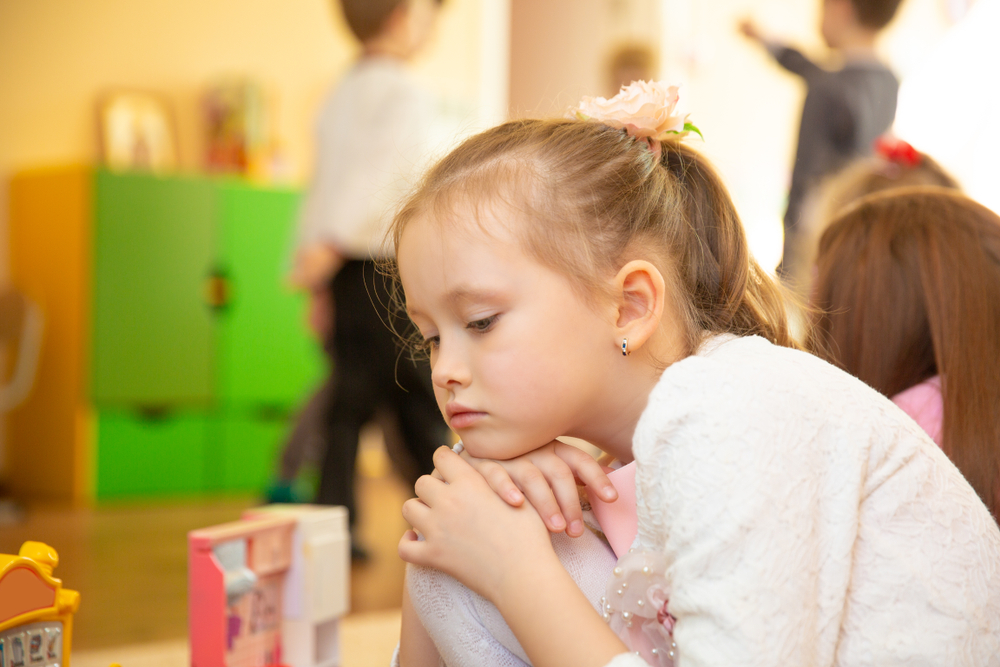Social anxiety refers to fear or worry related to interactions in social situations. The Mayo Clinic explains that “comfort levels in social situations vary, depending on personality traits and life experiences some people are naturally reserved, and others are more outgoing.”
A child struggling with social anxiety is overly concerned about being humiliated, embarrassed, evaluated, or rejected by others in social situations.
Mental health professionals rely on a variety of assessment tools to measure the severity of social anxiety in children and adolescents. Currently, the most frequently used measures to assess social anxiety in young people include:
- Social Anxiety Scale for Children-Revised (SASC-R): The SASC-R was one of the first instruments explicitly developed to assess social anxiety in children. It is a self-report, 22-item questionnaire, designed to evaluate the two major features of social anxiety, which according to Watson and Friend (1969) are fear of negative evaluation and social avoidance and distress.
- Social Anxiety and Distress Scale (SADS): The SADS is a self-report questionnaire that includes 28-items on a true/ false scale which measure aspects of social anxiety including distress, discomfort, fear, and avoidance.
- Social Phobia and Anxiety Inventory for Children (SPAI-C): The SPAI-C is a self-report questionnaire that evaluates the somatic, cognitive, and behavioral aspects of social anxiety in children between the ages of 8 and 14 years old. It is comprised of 26 questions aimed to assess the frequency of anxiety symptoms during particular social situations.
- Social Anxiety Questionnaire for Children (SAQ-C): The SAQ-C is a 24-item self-report questionnaire designed to assess how much embarrassment, nervousness, or fear specific social situations create for children and adolescents.
A young person that struggles with debilitating and pervasive symptoms of social anxiety may have social anxiety disorder. Social anxiety disorder (SAD), also referred to as social phobia, is listed in the Diagnostic and Statistical Manual of Mental Disorders, Fifth Edition (DSM-5) as a chronic mental health condition. The National Institute of Mental Health (NIH) explains that social anxiety disorder is “characterized by persistent fear of one or more social or performance situations in which the person is exposed to unfamiliar people or to possible scrutiny by others.” The information gleaned from these assessments is often integral to the diagnostic process and directly informs the subsequent recommendations offered by the evaluating mental health professional.
Further Information and Support
For most of us, life can be very stressful, leading us to feel emotionally charged, which can cause anxiety, panic attacks, depression, and getting stuck in a cycle of being burdened with negative thoughts. Navigating through the challenges and emotional turmoil of life can be overwhelming, but you do not have to go through it alone. Engage Treatment is a Joint Commission Accredited professional psychological practice. We specialize in treating children, teens, and young adults struggling with depression and anxiety through community-focused treatment plans that incorporate a carefully selected combination of therapeutic interventions. Our compassionate, multidisciplinary practitioners are devoted to providing the highest quality of care that helps ignite positive change and enables clients to reach optimal health and well-being. Please do not hesitate to reach out for guidance. We are happy to answer questions and provide you with any additional information. Feel free to call us at 805-497-0605 or email us at [email protected]. You are also welcomed to get in touch by filling out our contact form. We look forward to connecting and having the opportunity to discuss how we might best be able to support you.
Contact Us
Westlake Campus:
IOP Program
2625 Townsgate Road, Suite 210
Westlake Village, California 91361
Agoura Campus:
Private Therapy & Parenting Program
30300 Agoura Road, Suite 250
Agoura Hills, CA 91301
805-497-0605
805-371-4862











© 2023 Engage Treatment Program, Inc. All Rights Reserved.
LGBTQ Friendly
About
• About Engage
• Our Team
• Career Opportunities
• Individual / Family Therapy
Resources
• Community Resources
• Blog
• FAQ
• Referring Clinicians
• Privacy Policy & SMS Terms






